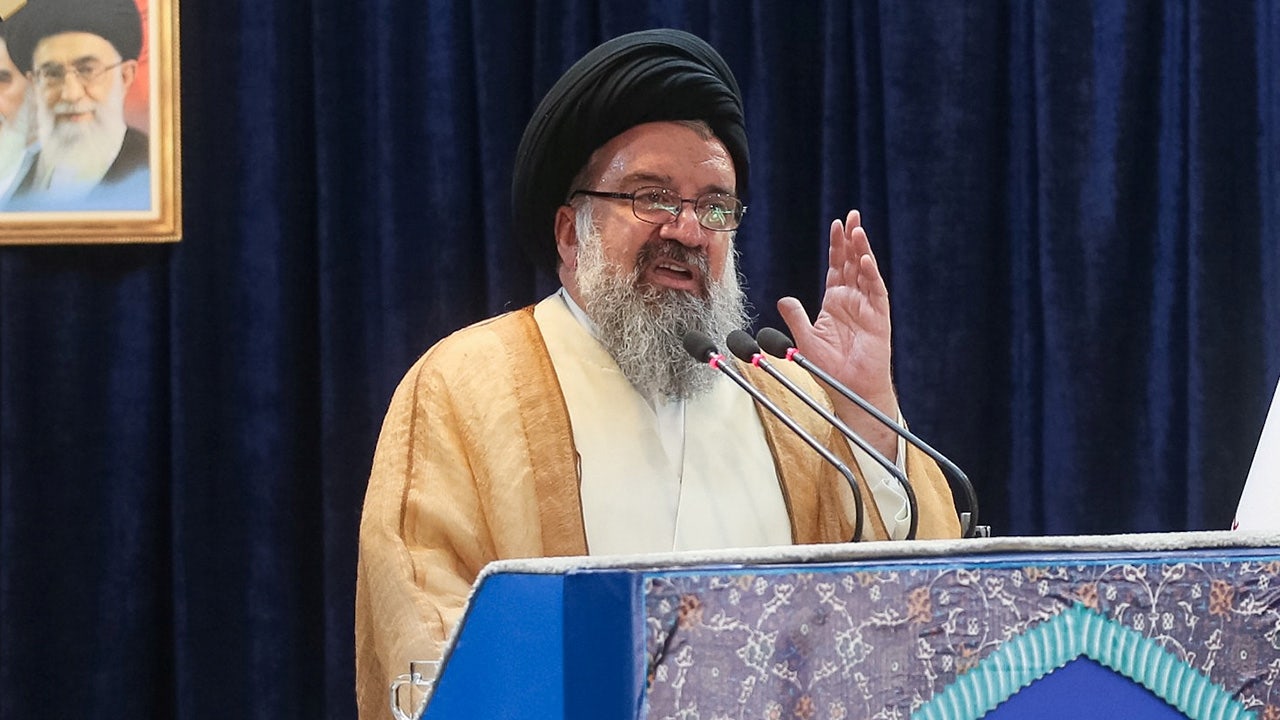July 7, 2025 — A prominent Iranian cleric, Ayatollah Ahmad Khatami, has issued a provocative call for the execution of U.S. President Donald Trump and Israeli Prime Minister Benjamin Netanyahu under Sharia law. The statement, delivered during a Friday sermon in Tehran, accused the two leaders of orchestrating the deaths of tens of thousands in Gaza and the assassination of Qasem Soleimani, a high-ranking commander of Iran’s Islamic Revolutionary Guard Corps, in 2020. “You are murderers, and you need to be punished,” Khatami declared, according to a translation by Memri TV, prompting chants of “Death to America” and “Death to Israel” from the crowd.
This call follows a series of fatwas issued by other senior Iranian clerics, including Grand Ayatollah Naser Makarem Shirazi, who labeled Trump and Netanyahu as “mohareb” (enemies of God) on June 29, 2025. Shirazi’s fatwa, reported by Iranian state media, urged Muslims worldwide to oppose the leaders for threatening Iran’s Supreme Leader, Ayatollah Ali Khamenei, and the unity of the Islamic community. Under Iranian law, the designation of “mohareb” carries severe penalties, including execution, crucifixion, limb amputation, or exile. Shirazi’s decree also deemed any Muslim support for Trump or Netanyahu as “haram” (forbidden).
The fatwas stem from heightened tensions following a 12-day conflict that began on June 13, 2025, when Israel launched airstrikes on Iranian nuclear and military facilities, killing top Ascientists and commanders. Iran retaliated with ballistic missile attacks on Israeli cities, and the U.S. joined the conflict, striking three Iranian nuclear sites. Trump’s public remarks about knowing Khamenei’s location and calling him an “easy target” further fueled the clerics’ rhetoric, with another cleric, Alireza Panahian, reinforcing the fatwa by urging Muslims to act against those threatening Khamenei.
Historically, Iranian fatwas have had significant impact, most notably the 1989 edict against author Salman Rushdie, which led to years of violence and assassination attempts. While fatwas are not legally binding outside Iran, they carry weight among Shia communities and can inspire action, raising concerns about potential incitement to violence. The U.S. and Israel have not officially responded to Khatami’s remarks, but the statements highlight ongoing geopolitical friction, particularly after Trump reportedly vetoed an Israeli plan to assassinate Khamenei during the recent conflict.
Critics, including analysts like Behnam Ben Taleblu from the Foundation for Defense of Democracies, view these fatwas as state-backed incitement to terrorism, potentially targeting not only Trump and Netanyahu but also Iranian dissidents. Amnesty International reports over 1,000 arrests in Iran recently, with fears of increased executions under the pretext of these decrees. Iran’s history of plotting against U.S. figures, including a foiled 2022 assassination attempt on Trump, underscores the regime’s ongoing threat.
As the region remains volatile, with Iran’s nuclear program reportedly set back but not destroyed, these religious decrees signal a dangerous escalation in rhetoric, framing Trump and Netanyahu as divine enemies rather than political adversaries. The international community watches closely as Iran’s clerical leadership continues to wield religious authority to influence both domestic and global actions.
